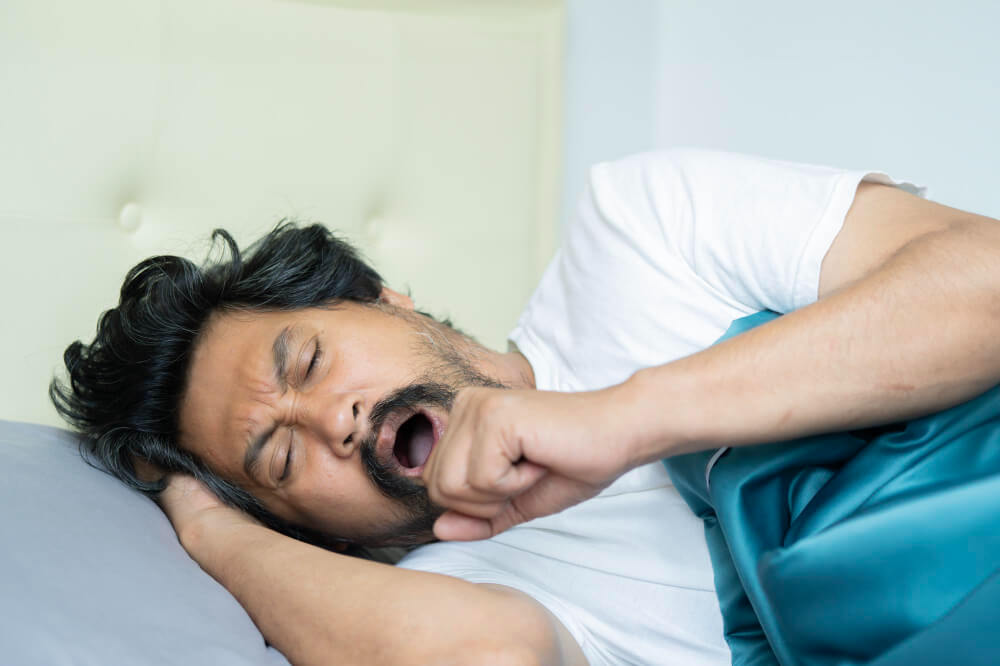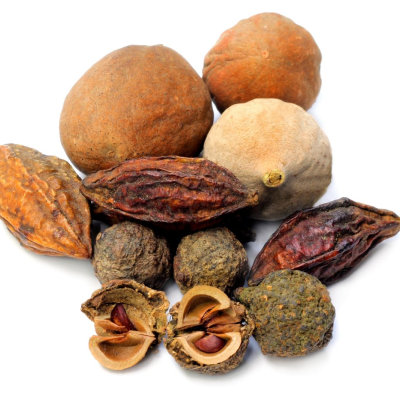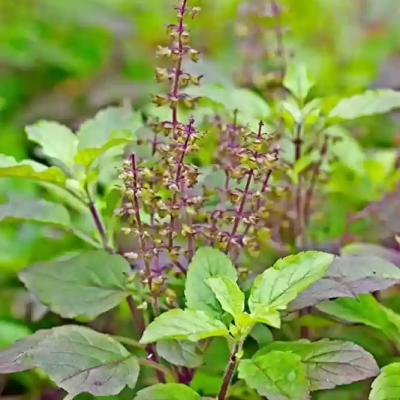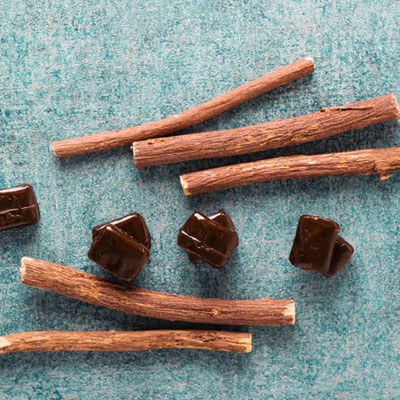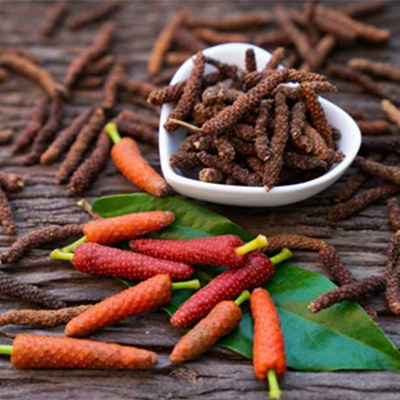Sleep Apnoea is a sleep disorder where your breathing repeatedly stops and starts during sleep. These interruptions can last for a few seconds to minutes and may occur multiple times during the night, disrupting normal sleep patterns. The pauses in breathing reduce oxygen levels in the blood, leading to poor quality sleep and daytime fatigue.
Common Skin Problems
Types of Sleep Apnoea
Obstructive Sleep Apnoea (OSA)
- The most common type.
- Happens when throat muscles relax and block the airway.
Central Sleep Apnoea (CSA)
- The brain doesn’t send the right signals to control breathing.
Complex Sleep Apnoea Syndrome
- A combination of OSA and CSA.
Causes of Sleep Apnoea
Obstructive Sleep Apnoea (OSA)
- Relaxation of throat muscles during sleep.
- Blockage by the tongue or soft tissue in the throat.
Central Sleep Apnoea (CSA)
- Neurological problems affecting brain signals.
Risk Factor is high in
- Lifestyle: Obesity, smoking, and alcohol use.
- Physical Features: Enlarged tonsils, narrow airway, or deviated septum.
- Health Conditions: High blood pressure, diabetes, or heart disease.
- Age & Gender: More common in middle-aged or older men.
Signs and Symptoms of Sleep Apnoea
During Sleep
- Loud snoring (common in OSA).
- Pauses in breathing or choking sounds.
- Restless sleep or frequent awakenings.
Daytime Symptoms
- Morning headaches.
- Excessive daytime sleepiness.
- Difficulty concentrating or irritability.
Others
- Dry mouth or sore throat upon waking.
- Insomnia or fragmented sleep.
Complications and Risks of Sleep Apnoea
Cardiovascular Issues
- High blood pressure, heart attack, or irregular heartbeat.
Stroke
- Reduced oxygen levels increase stroke risk.
Daytime Fatigue
- Poor sleep can lead to accidents, low productivity, and mood disorders.
Diabetes
- Increased risk of Type 2 diabetes due to insulin resistance.
Liver Problems
- Fatty liver or liver function abnormalities.
Cognitive Issues
- Memory problems, difficulty focusing, and increased risk of dementia.
Mental Health
- Anxiety, depression, and stress.
Ayurvedic Perspective on Sleep Apnoea
In Ayurveda, sleep disorders, including Sleep Apnoea, are linked to an imbalance in the doshas:
- Vata Dosha: Governs movement and breathing; its imbalance leads to irregularities in airflow.
- Kapha Dosha: Governs lubrication and stability; excess Kapha can cause blockages in the airways due to mucus or obesity.
Sleep apnoea can also be associated with weak Ojas (vital energy) and impaired Prana Vayu (life force responsible for respiration and mental clarity).
Ayurvedic Causes of Sleep Apnoea
- Poor digestion (weak Agni) leading to Ama (toxins) build-up.
- Excessive Kapha due to sedentary lifestyle or poor diet.
- Stress, anxiety, and irregular sleep patterns disturbing Vata.
- Obesity or excessive mucus (Kapha imbalance).
Ayurvedic Treatment for Sleep Apnoea
Lifestyle Recommendations (Vihara)
- Follow a consistent sleep schedule (go to bed and wake up at the same time).
- Avoid heavy meals and stimulants like caffeine or alcohol before bedtime.
- Practice nasal breathing techniques or Jala Neti (nasal cleansing) daily.
- Elevate the head while sleeping to improve airflow.
Dietary Modifications (Ahara)
- Eat Kapha-pacifying foods like warm, light, and easily digestible meals.
- Avoid cold, fried, or oily foods that increase Kapha and mucus.
- Include herbs like ginger, turmeric, and garlic to reduce inflammation.
- Drink warm water or herbal teas (e.g., tulsi or cinnamon tea).
Panchakarma Therapies
- Nasya Karma: Medicated oils (e.g., Anu Taila) are administered through the nostrils to clear blockages and improve breathing.
- Abhyanga (Oil Massage): Relieves stress and balances doshas.
- Vamana (Therapeutic Emesis): Helps clear Kapha from the system.
Yoga and Pranayama
Bhujangasana (Cobra Pose) and Matsyasana (Fish Pose) to open the airways.
Pranayama:
- Nadi Shodhana (Alternate Nostril Breathing) to calm Vata.
- Bhramari (Bee Breathing) to relax the mind and throat muscles.
Home Remedies
- Steam inhalation with eucalyptus oil to reduce nasal congestion.
- Gargling with warm salt water to soothe the throat.
Herbal Remedies
Triphala
Detoxifies the body and reduces mucus.
Tulsi (Holy Basil)
Clears airways and improves breathing.
Ashwagandha
Reduces stress and promotes restful sleep.
Licorice (Yashtimadhu)
Soothes the respiratory tract.
Pippali (Long Pepper)
Enhances respiratory function.
Preventing Sleep Apnoea Naturally
- Maintain a healthy weight to reduce airway blockages
- Avoid smoking and excessive alcohol consumption
- Exercise regularly, focusing on breathing and relaxation techniques.
- Use natural remedies like nasal sprays or humidifiers to prevent nasal dryness.
By balancing the doshas, strengthening the respiratory system, and adopting a healthy lifestyle, Ayurveda offers a holistic and sustainable approach to managing Sleep Apnoea.


